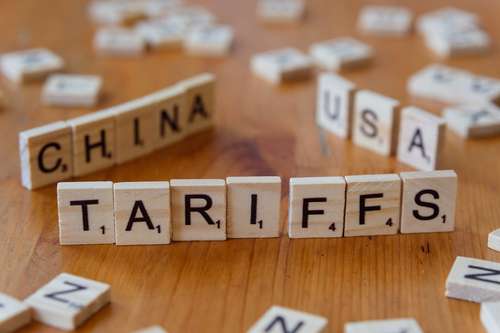Chinese President Xi Jinping is scheduled to visit Saudi Arabia next week, where preparations are already underway for a lavish welcome that will rival the one Donald Trump received on his first foreign trip as president.
The reception being planned for the Chinese leader contrasts sharply with the one given to Joe Biden in June, when the US president received a low-key welcome, reflecting strained relations between the two countries and personal dislike between Biden and Mohammed bin Salman, the de facto Saudi ruler.
As relations with Washington continue to deteriorate, Xi is instead anticipated to receive a befitting welcome designed to strengthen ties between Beijing and Riyadh and promote China's status as a Saudi Arabian ally.
Over the past two decades, China and Saudi Arabia have become more closely connected, but since Prince Mohammed began to amass power in the kingdom in 2016, ties have intensified. Riyadh has disagreed with the US on crucial human rights issues by supporting Hong Kong's draconian national security law and China's treatment of its Uyghur Muslim minority.
At the same time that Washington has turned its attention away from the Middle East, trade relations between the two nations have advanced.
Improving relations with biggest trading partner
Saudi Arabia's top trading partner is China. It is the biggest consumer of Saudi oil, according to Mohammed Alyahya, a fellow at the Hudson Institute and senior fellow at the Middle East Institute of the Harvard Belfer Center. "China is a key geopolitical player in the area. It has its sights set on military installations in Africa and elsewhere. Its interests had previously been wholly mercantilist and centered on trade. They are now approaching situations more strategically.
They are especially concerned with maintaining the free flow of oil. Both China and the US share this. According to the Americans, there has been a "pivot to Asia" in which attention has been diverted from the region to counter China.
However, the Chinese appear to view the area as the main arena for great power competition. China is the United States' main regional rival. They'll undoubtedly be keeping a close eye on things.

March marked Xi's initial invitation to Riyadh. Since Trump's arrival in May 2017, months after his inauguration, when he was welcomed with silver swords, a glowing orb, lavish gifts, and a rollout of Saudi and Arab royalty, his visit is likely to be the most significant for the kingdom.
That trip established the tone for how the Trump administration would view Riyadh during a time when the ambitious crown prince received frequent protection from Trump and his senior officials and developed close relationships with Kushner.
Regarding Saudi Arabia's invasion of Yemen, its boycott of Qatar, or the murder of dissident Jamal Khashoggi, which drew vehement condemnation in the US and Europe, China remained silent in public.
As US interest and power projection decline, China is increasingly seen as filling the void left in the region. Biden's visit to Saudi Arabia in June was unsuccessful in getting Prince Mohammed to increase oil supplies, which would have helped lower US gasoline prices in the run-up to the midterm elections.
Plans were being made to hoist tens of thousands of Chinese banners and welcome hundreds of dignitaries for the visit, which is anticipated to include Riyadh, Jeddah, and the planned megacity of Neom on the western Saudi coast.
By telling allies that Biden's visit was successful in reaffirming Riyadh's influence on the international stage and demonstrating a sovereign footing, Prince Mohammed has appeared emboldened. The visit has drawn criticism for the US's alleged role in Prince Mohammed's rehabilitation nearly four years after the murder of Jamal Khashoggi, which was carried out by Prince Mohammed's security personnel.
One senior Saudi official remarked, "Saudi has its swagger back." We communicate with our friends on an equal footing. Friends don't just show up, demand things, and expect nothing in return.
Recently, Prince Mohammed visited Greece and France, breaking his long isolation. The Biden visit, according to the Saudi official, "made that visit possible."




